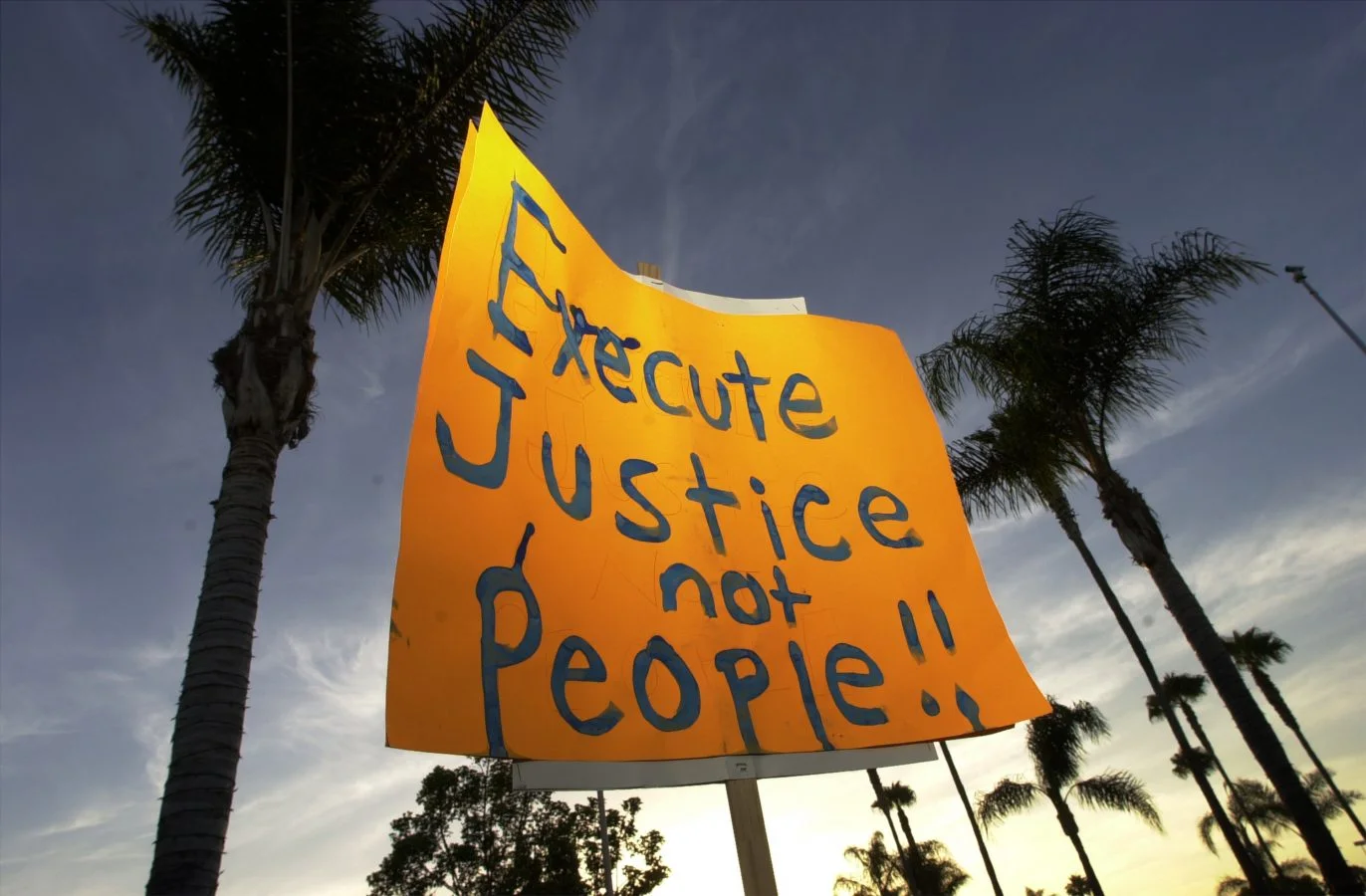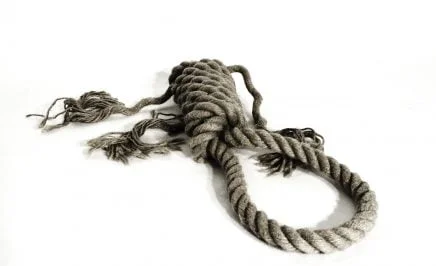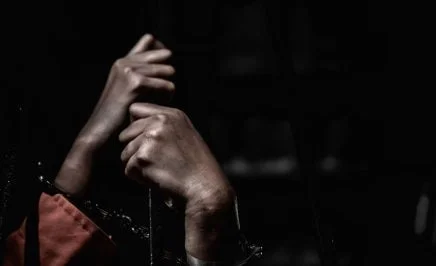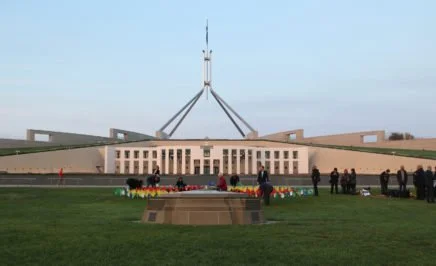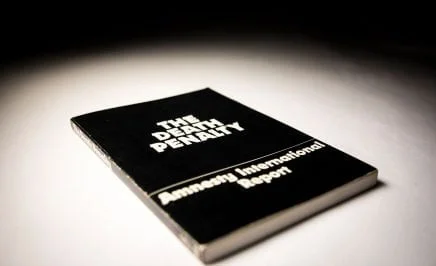Amnesty International’s new report, 2021 World Day Against the Death Penalty: the additional burden of the death penalty on women highlights some of the prevailing human rights concerns associated with the impact of the death penalty on women and calls for action to end the injustice and arbitrariness of the death penalty.
Whatever form it takes – hanging, lethal injection, beheading, stoning or electrocution – the death penalty is a violent punishment that has no place in today’s criminal justice system.
What is the death penalty?
Every day, people are executed and sentenced to death by the state as punishment for a variety of crimes – sometimes for acts that should not be criminalized. In some countries, it can be for drug-related offences, in others it is reserved for terrorism-related acts and murder.
When Amnesty started campaigning against the death penalty back in 1977, only 16 countries had abolished it. As of April 2021, 108 countries have abolished the death penalty for all crimes and 144 countries have abolished it in law or practice – a trend that must continue.
Women on death row
The lack of transparency on the use of death penalty by most countries, makes it impossible to accurately estimate how many women have been facing death penalty globally. However, the limited information available outlines
concerning trends, which see women being disproportionately represented on death row for certain offences and confronted with additional challenges in their experience of the criminal justice system.
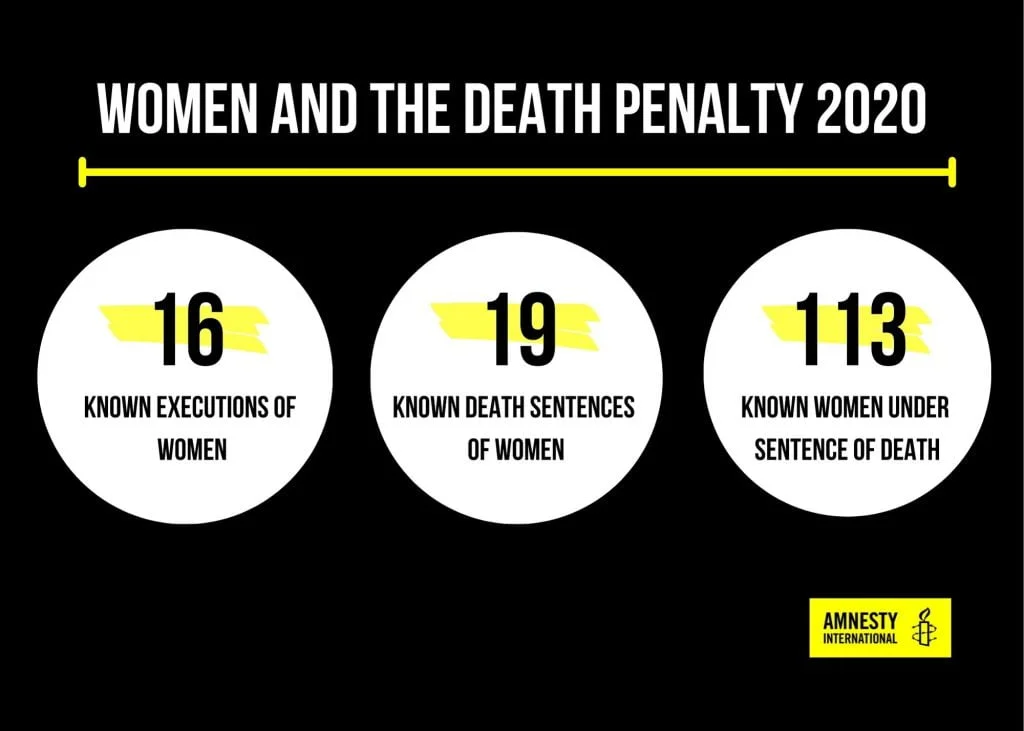
The information that Amnesty has been able to gather suggests that women have represented a small proportion of those executed, newly sentenced to death or living under a death sentence – in absolute terms. However, when considering the limited information available in relation to new death sentences imposed and people under sentence of death, it is immediately apparent that new death sentences are mainly linked to murder, but also involve convictions for non-lethal crimes, such as financial or drug-related offences, in violation of international human rights law and standards.
The disproportionate representation of women on death row is alarming, especially when taking into account the women who have been subjected to violence, abuse and exploitation who have little to no chance to get these factors taken into account at sentencing.
Women as secondary victims
As members of the family or support network of people under sentence of death, women have also been impacted by the death penalty as its “secondary victims”.
In many cases, women as family members of those on death row face greater barriers in obtaining the appropriate legal support for their relative, which impacts the enjoyment of the right to a fair trial for those facing the death penalty. Patriarchal structures within societies have led to situations where many women do not have access to education, independent and sufficient incomes, and independent support networks that can be accessed at such times. This therefore means that they are often more vulnerable to financial and other exploitation when seeking legal advice and support for their relatives or may not be able to get the most appropriate legal support.
Authorities’ failure to end discriminatory laws and practices
The authorities have also failed to protect human rights through their lack of action towards repealing laws and policies that allow practices which are directly or indirectly discriminatory; and interact with and foster a culture that endorses violence, abuse and discrimination against women, as well as impunity for their perpetrators. These include child and forced marriage, male guardianship, or male approval as an essential condition for divorcing, discrimination in access to education and employment, cultural and social norms on family “honour”, lack of adequate state registries and social support systems, among other examples.
In contexts where the death penalty is a possible – or even the only – punishment for murder and where violations of the right to a fair trial are frequent, gender-based discrimination is relevant to the commission of the offense itself, and it also puts women at greater disadvantage in their experience of the criminal justice system and further exacerbates the injustice in their cases.
Other aspects of a woman’s identity can also contribute to exacerbating her disadvantage in the experience of justice, for example when she has a mental or intellectual disability or is a child.
Amnesty International’s recommendations
Amnesty International calls on countries that still retain the death penalty to immediately abolish it for all crimes.
Pending this we ask them to:
- Immediately establish a moratorium on all executions and commute all death sentences
- End the imposition and implementation of death sentences on people who were below 18 years of age when the offence was committed, and if the age is disputed to give the benefit of the doubt in favour of the defendant
- Remove the mandatory death penalty for all crimes; including for drug trafficking, and mandate a judicial body, whether existing or established specifically for this aim, to review all cases where people have been sentenced to death, with a view to commuting the death sentences as a matter of urgency
- Bring national legislation in line with international law and standards
- Ensure that all persons facing the death penalty – including those from disadvantaged or marginalised socio-economic backgrounds – are provided access to effective legal assistance, from the moment of arrest or when they first face criminal charges, all the way through to appeals and other recourse procedures, and ensure that legal aid programmes are provided sufficient resources to appoint competent pro bono lawyers in all regions
- Regularly publish full and detailed information, disaggregated at least by gender, nationality and ethnic background, about the use of the death penalty which can contribute to a public debate on the issue
- Remove provisions from national legislation that have a disproportionate impact on those from less advantaged socio-economic backgrounds, women, young people, ethnic minorities and foreign nationals; and implement alternatives to the criminalization of minor and non-violent drug-related offences that do not cause harm to others.
- Put in place a wide set of gender-sensitive and holistic socio-economic protection measures to ensure that crime control laws and policies contribute to overcoming structural factors for inequality, stigma and discrimination that affect people who use drugs or who engage in the drug trade, especially women and those belonging to marginalized and disadvantaged communities. These include ill-health, denial of education, unemployment, lack of housing, poverty and discrimination.
- Address effectively gender stereotypes through, for example, community outreach and public education campaigns, and promote women’s and girls’ participation in public life
Amnesty International’s death penalty report
Amnesty International opposes the death penalty in all cases without exception, as a violation of the right to life as proclaimed in the Universal Declaration of Human Rights and the ultimate cruel, inhuman and degrading punishment. Amnesty International is a founding member of the World Coalition Against the Death Penalty, which coordinates this global day of activism against the death penalty every 10 October.
This report is based on Amnesty International’s analysis of women on death row and the additional burdens they face against the death penalty. It explains the importance of addressing other discrimination against women and seeks to spell out the government obligations to end the death penalty.
Find out more about Amnesty’s campaign against the death penalty.
